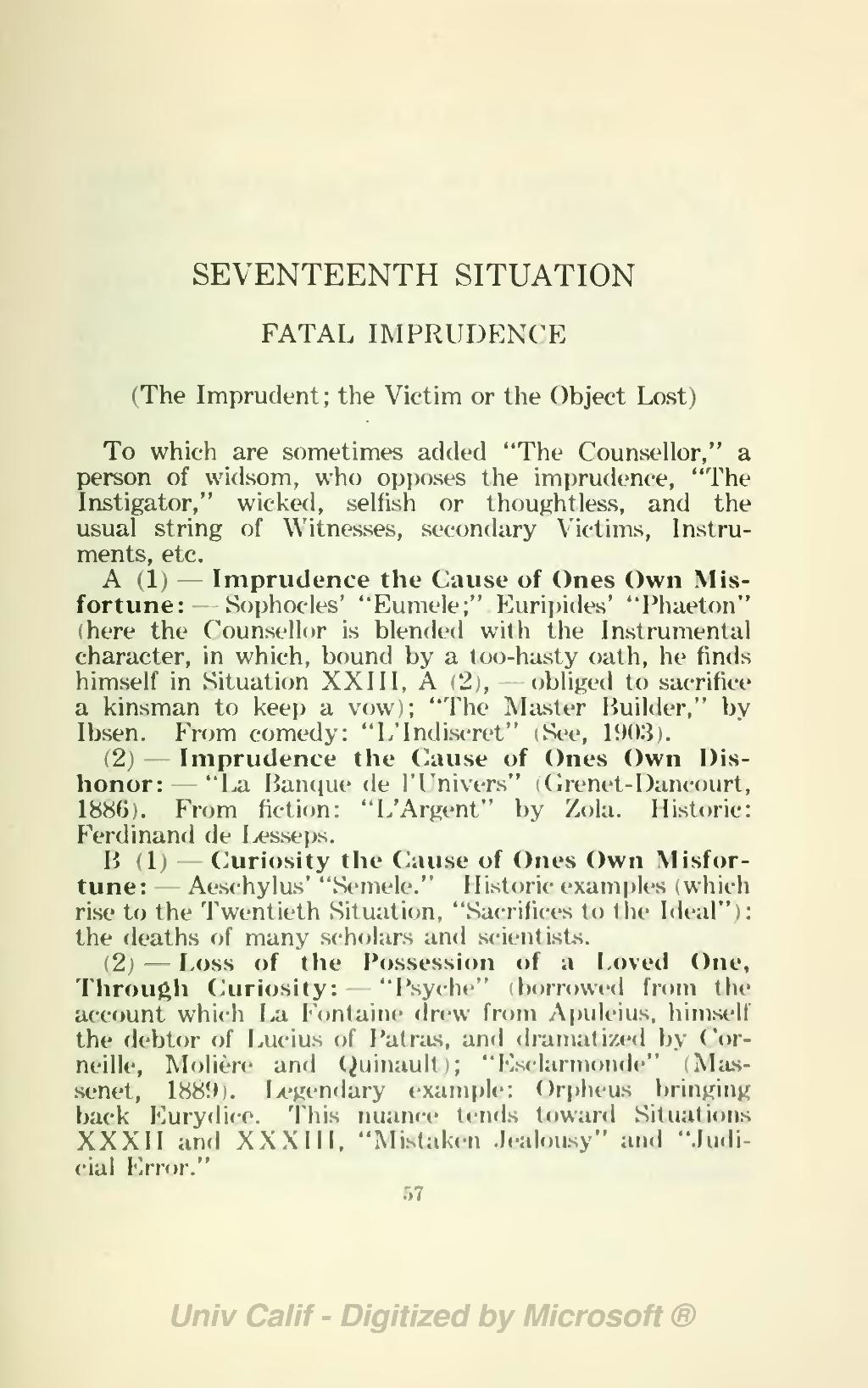SEVENTEENTH SITUATION
FATAL IMPRUDENCE
(The Imprudent; the Victim or the Object Lost)
To which are sometimes added "The Counsellor," a person of widsom, who opposes the imprudence, "The Instigator," wicked, selfish or thoughtless, and the usual string of Witnesses, secondary Victims, Instruments, etc.
A (1) — Imprudence the Cause of Ones Own Misfortune: — Sophocles' "Eumele;" Euripides' "Phaeton" (here the Counsellor is blended with the Instrumental character, in which, bound by a too-hasty oath, he finds himself in Situation XXIII, A (2), — obliged to sacrifice a kinsman to keep a vow): "The Master Builder," by Ibsen. From comedy: "L'Indiscret" See, 1903).
(2) — Imprudence the Cause of Ones Own Dishonor: — "La Banque de I'Univers" (Grenet-Dancourt, 1886). From fiction: "L'Argent" by Zola. Historic: Ferdinand de Lesseps.
B (1) — Curiosity the Cause of Ones Own Misfortune: — Aeschylus' "Semele." Historic examples (which rise to the Twentieth Situation, "Sacrifices to the Ideal"): the deaths of many scholars and scientists.
(2) — Loss of the Possession of a Loved One, Through Curiousity: — "Psyche" (borrowed from the account which La Fontaine drew from Apulius, himself the debtor of Lucius of Patras, and dramatized by Corneille, Moliere, and Quinault); "Esclarmonde" (Massenet, 1889). Legendary example: Orpheus bringing back Eurydice. This nuance tends toward Situations XXXII and XXXIII, "Mistaken Jealousy" and "Judicial Error."
